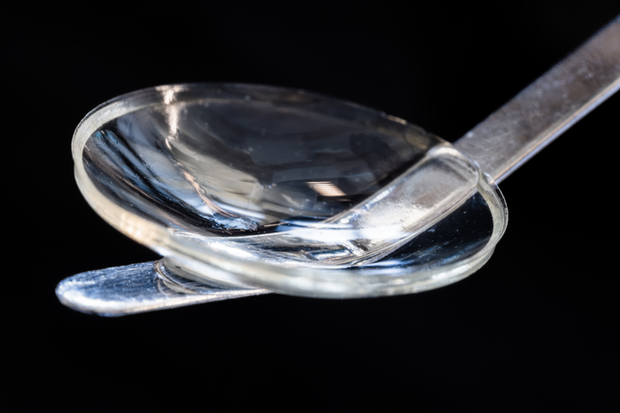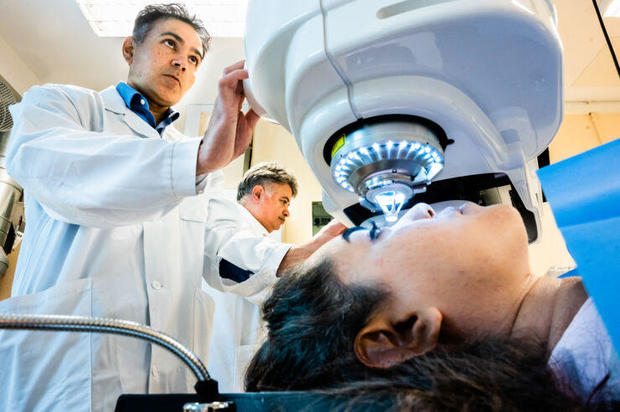Pig skin protein gives sight back to 14 blind people – including three with perfect vision
[ad_1]
Twenty people who were blind or on the verge of being so have had some or all of their sight restored thanks to a food industry byproduct — pig skin.
Researchers from Linköping University and LinkoCare Life Sciences AB were able to give the group their vision back with a special corneal implant made from medical-grade collagen from porcine skin, a purified food industry byproduct that’s used in FDA-approved medical devices for treating glaucoma. The implant was given to those who suffer from diseased corneas, the outermost and transparent layer of the eye, an issue that affects millions of people worldwide.
Thor Balkhed/Linköping University
A 2016 study found that an estimated 12.7 million people are on waiting lists for cornea transplants, which are the only curative treatment for corneal blindness, and that only one in 70 is able to get the surgery. Most of those in need of the surgery, which requires a human donation, live in low- and middle-income countries in Asia, Africa and the Middle East.
But the latest study, published on Thursday in Nature Biotechnology, could provide a new and less invasive solution.
The newly bioengineered corneas were given to 14 people in Iran and India who were already blind and six others who were on the verge of losing their sight. Scientists immediately saw promising results.
Along with limited donor availability, the typical treatment, which requires doctors to surgically replace a cornea and sew it into place, also risks graft rejection, healing complications, infections, astigmatism and the need for long-term support. The new method, however, allows doctors to insert the implant into the existing cornea, requires no stitches and incision is minimally invasive with either an advanced laser or by hand.
“The operations were free from complications; the tissue healed fast; and an eight-week treatment with immunosuppressive eye drops was enough to prevent rejection of the implant,” a press release for the study states. “With conventional cornea transplants, medicine must be taken for several years. The patients were followed for two years, and no complications were noted during that time.”
Thor Balkhed/Linköping University
The patients’ new corneas were restored to normal, scientists found, and as a group, their sight improved as much as it would have with a typical cornea transplant, if not better. By the end of the study, all 14 people who had once been blind had fully regained their vision – including three who ended up having perfect 20/20 vision.
“Bioengineering implantable tissue is the key to addressing the global burden of corneal blindness,” the study says.
Along with the promising procedure results, the new corneas can also be more accessible as they can be stored for much longer than organ donations: two years compared to two weeks. And because they are packaged and sterile, the study says, they don’t require pathogen testing if there are viral outbreaks.
Researchers still must do a larger clinical study before the new treatment can be formally approved and used in health care and they said they also want to see if the technology they developed can be used for other eye diseases.
“We’ve made significant efforts to ensure that our invention will be widely available and affordable by all and not just by the wealthy,” Mehrdad Rafat, the researcher and entrepreneur behind the design and development of the implants, said in a press release. “That’s why this technology can be used in all parts of the world.”
[ad_2]
Source link













